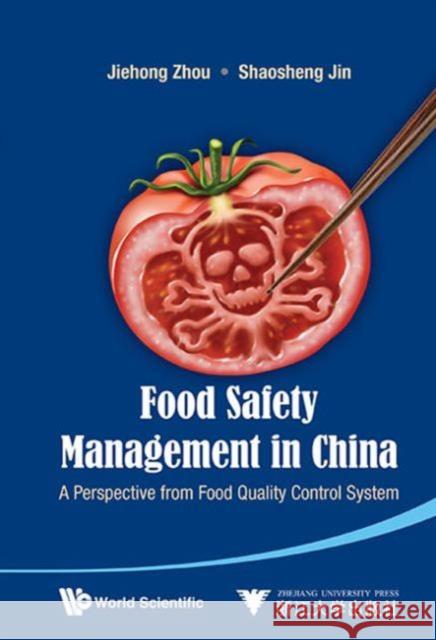Food Safety Management in China: A Perspective from Food Quality Control System » książka
Food Safety Management in China: A Perspective from Food Quality Control System
ISBN-13: 9789814447751 / Angielski / Twarda / 2013 / 240 str.
Food Safety Management in China: A Perspective from Food Quality Control System
ISBN-13: 9789814447751 / Angielski / Twarda / 2013 / 240 str.
(netto: 366,24 VAT: 5%)
Najniższa cena z 30 dni: 381,40
ok. 30 dni roboczych
Bez gwarancji dostawy przed świętami
Darmowa dostawa!
In recent years, China has taken a number of effective measures to strengthen the supervision of food quality and safety, but food safety incidents still occur sometimes. The recurrence and intractability of such incidents suggest that, in addition to the imperfect supervision system, the greatest obstacle to China's food quality safety management is that China's "farm to fork" food supply chain has too many stages, the members on the supply chain have not formed a stable strategic and cooperative relation, and on the other hand, during the transitional period, some practitioners lack social responsibility. Therefore, China's food quality safety management and the establishment of food quality and safety traceability system should follow the development trend of international food quality and safety supervision, and combine with the establishment of China's agricultural industrialization and standardization, integrate China's existing but isolated effective measures. To this end, this book chooses important agricultural products as the subjects to be investigated. From an "integrated" vertical perspective of the supply chain and according to the degree of industrialization of different products, this book carries out empirical analysis of the construction of food quality and safety control system, such as HACCP (Hazard Analysis Critical Control Point) quality control system and food quality and safety traceability system. It deeply analyzes and straightens out the dynamic mechanism and the performance of different business entities implementing the food quality and safety management system. The book puts forward ideas and suggestions to establish long-term effective food quality and safety management system, which can provide the scientific basis for the government to design food quality and safety management policies.











